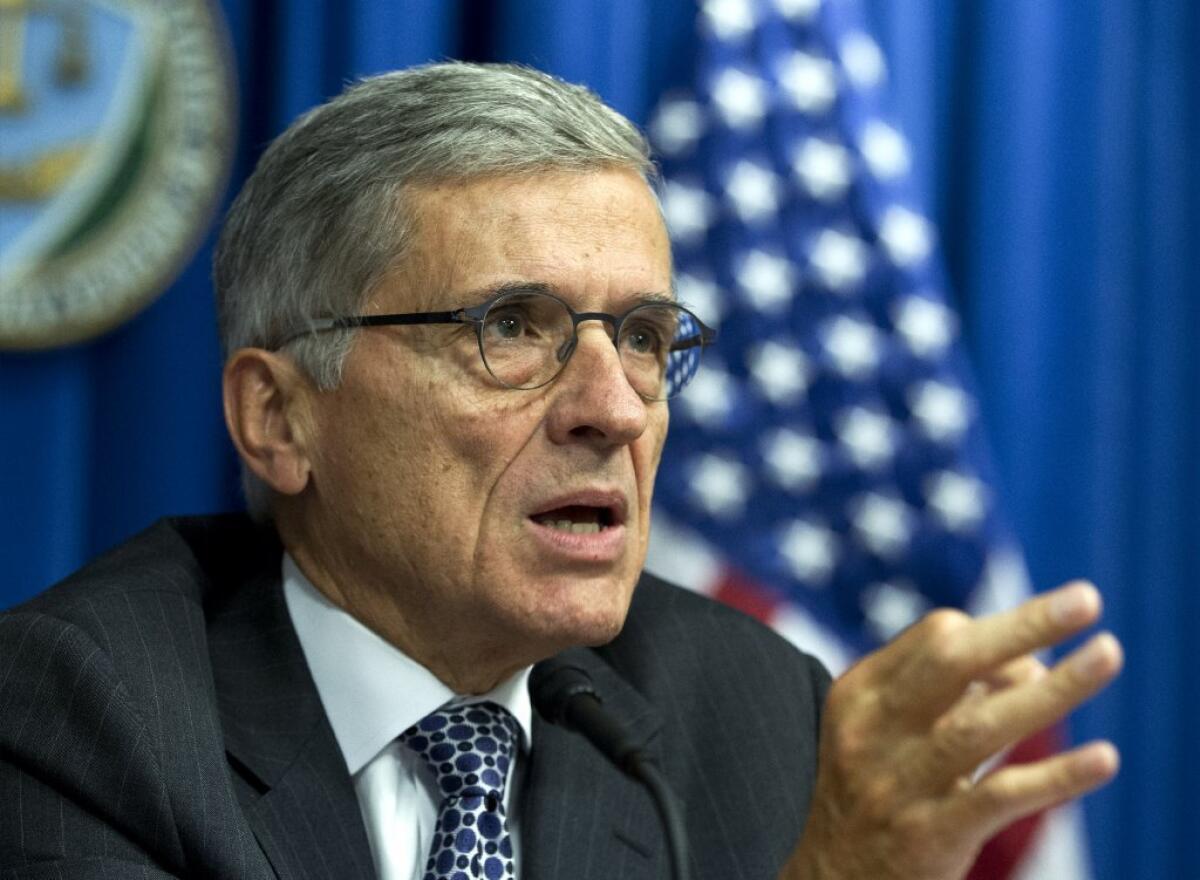FCC chairman proposes expanding video channel access rules

Federal Communications Commission Chairman Tom Wheeler has proposed expanding video channel access rules to include Internet-delivered services.
Wheeler’s proposal, which was unveiled Tuesday, is an attempt to increase competition in a rapidly evolving industry.
His goal is to modernize FCC rules that were adopted in the early 1990s -- long before the Internet was envisioned as a viable distribution outlet.
The change -- to broaden the definition of a pay-TV provider, known in the industry as a “multichannel video programming distributor” -- could provide non-traditional carriers with access to some of the most popular channels in television.
Companies that seek to distribute packages of TV channels over the Internet would be included in the revised definition. That would put them on equal footing with cable TV operators, satellite TV services and telephone companies AT&T and Verizon, which also offer TV packages.
Tech giants, including Google and Apple, have struggled, without success, to offer a package of television channels to consumers. A rule change could galvanize those efforts.
“I am asking the commission to start a rulemaking proceeding in which we would modernize our interpretation of the term ‘multichannel video programming distributor’ (MVPD) so that it is technology-neutral,” Wheeler wrote in a blog post on the FCC website.
Currently only cable, satellite and telephone companies that offer TV channels are defined as multichannel video programming distributors.
The rule was adopted in 1992 to ensure that cable TV operators, such as Comcast Corp., that also owned TV channels would not block access to their channels as a way to thwart competition.
Congress, at the time, was worried that cable companies would use their clout to freeze out what was then a new technology: satellite TV.
But now some of these same TV powerhouses, including Dish Network, DirecTV and Sony Pictures Entertainment, are cobbling together packages of TV channels that would be streamed to consumers via the Internet.
These packages are being designed to attract younger consumers and price-sensitive consumers who do not subscribe to cable or satellite TV -- because of the high cost.
Several groups cheered Wheeler’s proposal.
“A technology-neutral definition of an MVPD is long overdue and will enhance consumer choice,” the Writers Guild of America, West, said Tuesday in a statement.
“With the largest MVPDs attempting to consolidate their control of content distribution through mergers, this game-changing proposal to allow new competitors is absolutely necessary,” WGA, West, said.
Wheeler, in his memo, said expanding the definition would give Internet-based distributors “the same access to programming owned by cable operators.”
Internet-based distributors, Wheeler said, would also have “the same ability to negotiate to carry broadcast TV stations that Congress gave to satellite systems in order to ensure competitive video markets.”
That means start-ups, such as the fledging service Aereo, someday might be able to legally distribute signals from broadcast TV stations, including ABC, CBS and NBC affiliates.
Major broadcasters, by invoking copyright ownership, have successfully blocked Aereo’s attempts to transmit their signals over the Internet. In June, the U.S. Supreme Court sided with the TV broadcasters, ruling against Aereo.
The move might give Aereo another bite at the apple.
The full FCC must vote on Wheeler’s proposal.
Twitter: @MegJamesLAT
More to Read
From the Oscars to the Emmys.
Get the Envelope newsletter for exclusive awards season coverage, behind-the-scenes stories from the Envelope podcast and columnist Glenn Whipp’s must-read analysis.
You may occasionally receive promotional content from the Los Angeles Times.







